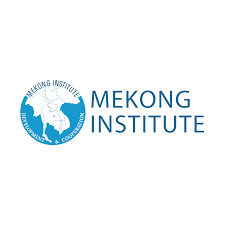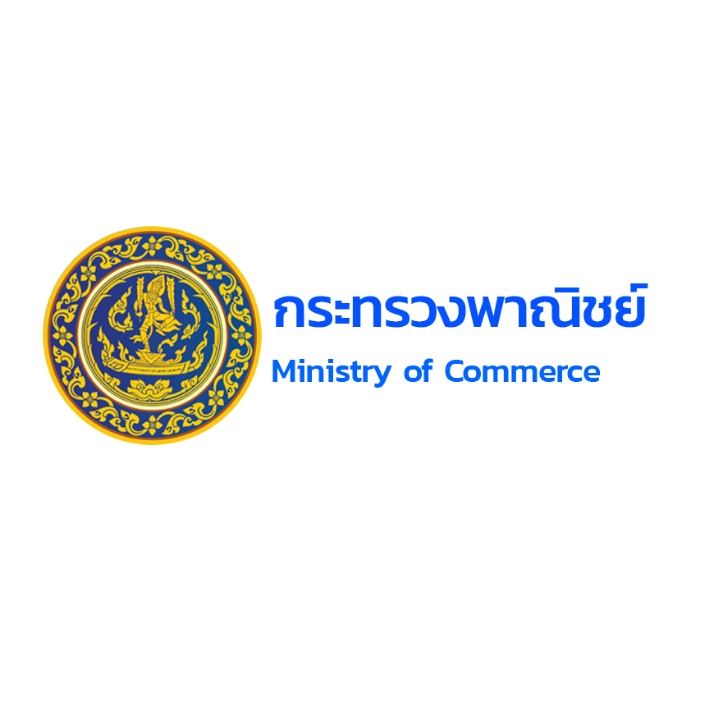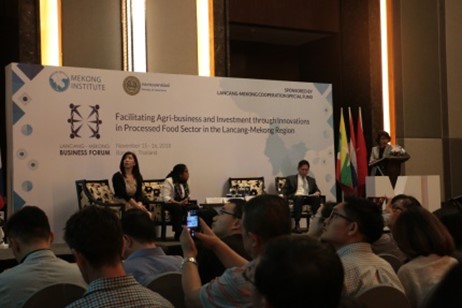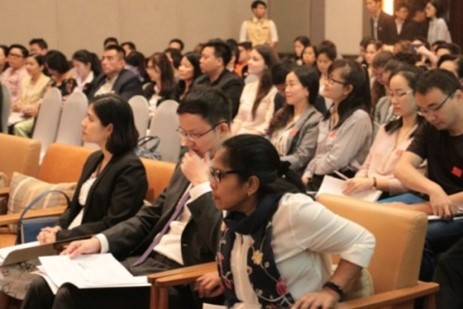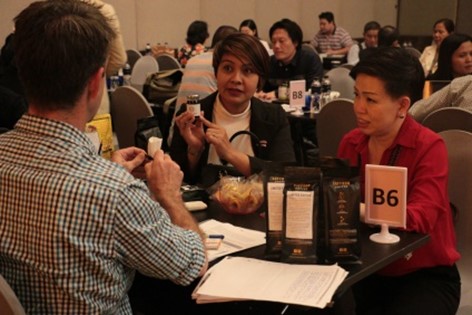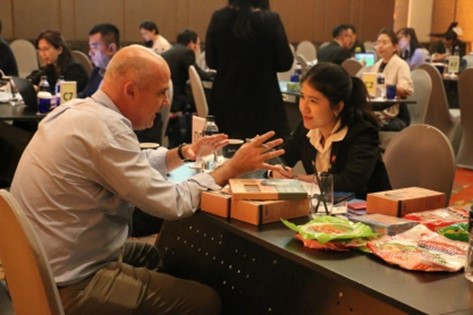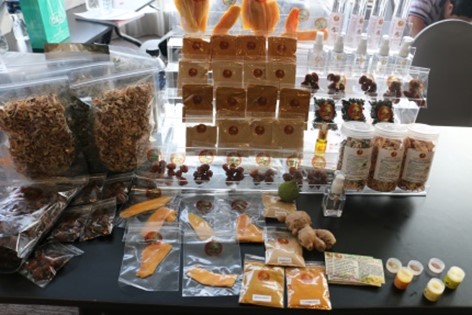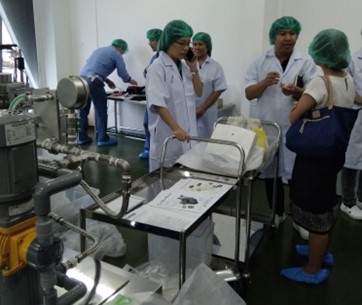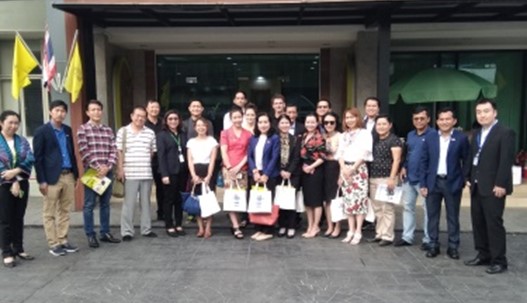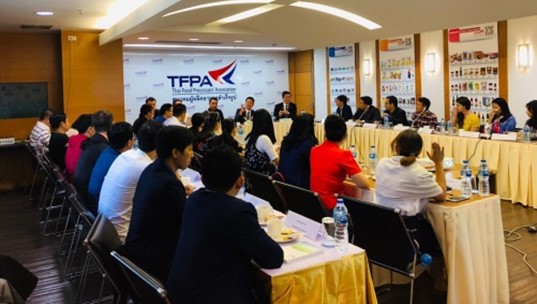info@lancangmekongforum.com
+66 (0) 43-202-411
About The Forum
The 1st Lancang-Mekong Business Forum (LMBF)
Agriculture and food industry has been one of the fast growing industries in the Lancang Mekong countries. Cambodia, Lao PDR, Myanmar, Thailand and Vietnam (CLMTV) altogether have witnessed the average annual GDP growth of 7.5% GDP since 1992.1 They also witnessed annual urbanization growth of 3%. Such significant economic growth and urbanization have impacted the way consumers in these countries relate to agriculture and food products and which has consequently resulted in the growth of the industry.
Trading of agricultural and food products in Lancang-Mekong countries are also growing in the recent years. Agribusiness enterprises that are connected to farmers, producers and smallholders are increasingly reaching out to regional and global value chain. Comprehensive supply chains in agriculture and food products such as rice, coffee, rubber, pepper, cashew nut, dried fruit etc., have also been established in the CLMTV.
Within agriculture and food industry, food processing sector has been key as well as rapidly changing sector. There are issues such as changing consumer taste and preferences (e.g., preference for organic food, food produced in environmentally sustainable manner, health food, nutrition consciousness, source of food or food stories), new technology and innovation
to produce, process and preserve food in sustainable and cost-effective ways, environmental and livelihood impacts of the food processing sector, food security etc. which shape the developments of the sector. In the context of Lancang-Mekong countries, a lot of the discussions related to food processing have been on regarding food safety, food security and developing food processing industries in these countries, which would add value to their economies and enhance income of sizeable percentages of population of each country which are engaged in either agriculture or food industries.
In terms of the future, the food processing sector is required to pay attention to dual needs of feeding the growing as well as the aged population, concerns about obesity (i.e. sugar content in food) and impact of certain kinds of food on health (e.g. sugar substitutes), concerns about meat industry (i.e. treatment of animals), disruptive innovation led by startups in areas such as plant-based proteins, personalized nutrition and food technology (e.g. in packaging or labeling) etc.
In Lancang-Mekong countries, Vietnam is one of the countries that has witnessed steady growth of food processing sector. According to Ministry of Industry and Trade (MOIT), during 2013 – 2017, annual processes food and beverage consumption in Vietnam witnessed the average growth of 9.68% / year and 6.66% / year respectively.3 Also, the industrial production index in the same period witnessed the average growth of 6.8% / year for processed food and 9.7% / year for beverages.4 Finally, mainly due to the growing trend of consuming ready-to-eat food and, especially organic food, and increase in incomes, annual consumption value of the food processing sector in the country is expected to reach 15% of GDP.5 In addition, Business Monitor International (BMI) in 2018 projected the food industry in Vietnam to experience annual growth of 10.9% during 2015 – 2020.6 Finally, according to Investment promotion Center for Industry, food and beverages currently account for the highest proportion of monthly consumer spending in Vietnam, accounting for around 35% of the total.
In terms of the Ho Chi Minh City, the biggest city and the commercial capital in Vietnam, municipal trade department announced that it witnessed the 8.7% growth in food processing sector and the 4.6% growth in beverage production sector during January – October 2018.8 The department also noted that by December 2018, processed food products are sold at 2,280 convenience stores in the Ho Chi Minh City, a year-on-year increase of 507 stores.
Food processing sector has also been one of the priority sectors of Vietnam government. According to the Ministry of Planning and Investment, by the end of 2018, foreign direct investment (FDI) in the food processing sector in Vietnam reached $11.2 billion over 717

Goals & Objectives
The Business Forum would be an important platform for sharing innovations and good practices in the Lancang-Mekong region on new approaches to sustainable and inclusive innovation in the processed food industry. It will provide a unique opportunity for the food industry value chain actors to seek potential partners and discuss concrete investment plans. It would allow a transition to sustainable processed-food in Lancang-Mekong region to be established as the ultimate objective. The event will focus on:
- Establishing business linkages among the business enterprises from Lancang - Mekong countries;
- Assisting Investors integrate into the Regional and Global Value Chains (R-GVCs) further;
- Exchanging information among business enterprises from the Lancang - Mekong countries on state of art technology and innovative products to push forward the food sector growth;
- Promoting investment through business collaboration in the Lancang - Mekong countries.
Business Forum Structure
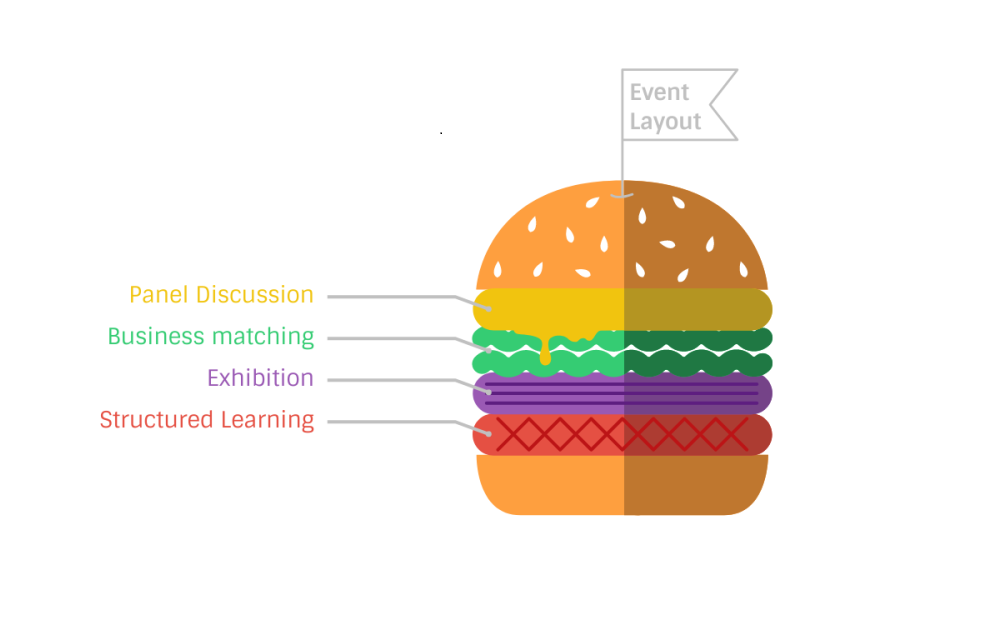
Part 1: Panel Discussion
A Panel Discussion will discuss the key issues for innovation in the processed food industry with two outstanding points (product and marketing) under the Lancang – Mekong region context. It will be organized on the first day of the event and is structured as below;
| Panel Discussion: Session I 9.00 – 10.30 (1 hr.) |
|
|---|---|
| Key discussion points | Supported questions |
| Policy Issues on Food Safety and Possible Challenges in the Lancang - Mekong region |
|
| Issues on Non-tariff measures (NTMs) in processed food sector |
|
| Processed food sector emerging trends and opportunities |
|
| Panel Discussion: Session II 11.10 – 12.10 (1 hr.) |
|
|---|---|
| Key discussion points | Supported questions |
| Product Innovation: Innovation ideas and development challenges of agri- food |
|
| Marketing Innovation in processed-food sector |
|
| Packaging Innovation for Processed Food Industry |
|
Part 2: Business matching
The business matching would be attended by selected food processing companies including investors with an aim to provide an opportunity to have direct exposure to the processed food sector through a platform for conducting concrete business negotiations.
The business matching participants from P.R. China, Cambodia, Lao PDR, Myanmar, Vietnam and Thailand will be comprised of food value chain actors comprising of Food Exporters & Importers, Processors, Producer Groups, R& D centres, Machinery manufacturers/Suppliers, Input suppliers, Packagers,
The Business Matching will comprise of the following sub-activities:
- Dynamic web platform: A dynamic web portal (www.lancangmekongforum) has been created with relevant information including the introduction to the Business Forum, fact sheet exhibitor list, participants’ registration, news and media, venue, floor plan and etc. This platform will provide the facility to register for event (s).
- Pre business matching (online): Pre business matching will be conducted through a dynamic web portal. The prospective companies from the Lancang-Mekong countries will be required to register on this platform and provide their company profile including products/services and indicate their specific business interests. The information would be used to identify specific business interests to facilitate onsite business-to-business meeting sessions.
- Onsite business matching: One-to-one business matching between Lancang-Mekong businesses will be arranged. MI and its cooperation partners will co-facilitate the business matching. MI staff and its cooperation partners will provide onsite consultations to B2B parties arrange meetings based on the pre matching results obtained from web portal, record progress of the business matching and obtain feedback.
- Post-forum follow up (duration: three months): As a follow-up of the onsite event, MI will utilize the web-based platform to monitor the progress of the business matching. At the same time, MI will follow up through emails and phone calls, and provide necessary online consultations required, to facilitate investment projects among Lancang-Mekong businesses.
Part 3: Exhibition
The Lancang – Mekong Business Forum 2019 will feature an exhibition a focusing on Processed Food Innovative products, where companies will have the opportunity to present their products and services. This Area will be dedicated to food products, technologies related to, packaging and labeling etc, to exhibit their products and services.
Part 4: Structured Learning Visit (SLV)
SLV(s) will be organized with an aim to provide participants with an opportunity to understand state-of-the-art production systems, including packaging, processing, standards and certification process, quality control technologies, research and development (R&D), skill development, and input suppliers in the processed-food business sector in Vietnam. Visit to leading food processing units, R& D centers, etc. will be arranged in and around Ho Chi Minh City.
Target Participants
The target participants for the Forum include:
- A. 30 Participants from China, Cambodia, Laos, Myanmar and Thailand will be selected(6 participants from each country, 30 participants in total): Comprising of agro-food processing associations/institutions representatives.
- B. 70 Participants from Vietnam, comprising of
- Representatives of the Food processing sector (50 participants): agro processing companies, producers’ groups, exporters, equipment and technology suppliers, and transport/logistics firms, etc.
- Representatives of government agencies and intergovernmental organizations (10 participants): Food and Drug Administration (FDA), Ministry of Public Health, Ministry of Agriculture, heads of key agri-business sectors association/institutions representatives.
- Representatives of food processing support organizations (10 participants): Producers associations, agriculture research/development/extension firms, policy/advocacy organizations, ADB, the World Bank, the IFC, international business chambers based in Thailand, and embassies and foreign missions of China, Cambodia, Lao PDR, Myanmar and Thailand in Vietnam.
**The participants from private sector must be senior staff (e.g., sales manager). He/she who must be able to speak English and have business negotiation/discussion skill with the potential business partners on behalf of their company.
Expected Outcomes
At the end of the Business Forum, the participants would be able to identify potential business partners for a wide range of business possibilities including market access, technology, R&D, information, joint ventures, finance, etc. in the food processing sector. The event participants will also be able to update on the latest technology and product innovation to improve productivity, competitiveness and business networking.
OUR AGENDA
Thurday, November 15, 2018
Venue: Grand Ballroom 2, Radisson Blu Plaza Bangkok, Bangkok, Thailand
Registration
- Welcome and Opening Remarks (10 Minutes) by Dr. Watcharas Leelawath, Executive Director, Mekong Institute (MI)
- Overview and Objective of Lancang – Mekong Business Forum 2018 (10 Minutes) by Mr. Madhurjya Kumar Dutta, Director, Trade and Investment Facilitation (TIF) Department, Mekong Institute (MI)
- Keynote Speech: The Power of INNOVATION in Agri - Food Industry (15 Minutes) by Mr. Visit Limlurcha, President, Thai Food Processors’ Association / Chairperson, Food Processing Industries Club, Federation of Thai Industries (FTI)
3 Sub topics - 15 mins / each + 30 mins Q&A
- Policy Issues on Food Safety and Possible Challenges in the Lancang Mekong region
- Processed food sector emerging trends and opportunities
- Issues on Non-tariff measures in processed food sector
Moderator: Dr. WatcharasLeelawath, Executive Director, Mekong Institute (MI)
Discussants:
- Masami T. Takeuchi, Ph.D., Food Safety Officer, Food and Agriculture Organization (FAO)
- Dr. Akeanong Jangbua, Chief Operating Officer (COO), Food Innopolis
- Ms. Ratna Devi Nadarajan, Program Specialist, Agricultural Development and Commercialization (ADC) Department, Mekong Institute (MI)
Networking Refreshments for 20 minutes
3 Sub topic- 15 mins / each + 30 mins Q&A
- Product Innovation: Innovation ideas and development challenges of agri- food
- Marketing Innovation in processed-food sector
- Packaging Innovations for Food Industry
Moderator: Mr. Madhurjya Kumar Dutta, Director, Trade and investment Facilitation (TIF) Department, Mekong Institute (MI)
Discussants:
- Mr. Yongvut Saovapruk, President of National Food Institute
- Mr. Thirach Rungruangkanokkul, Executive Director of Agricultural and Food Marketing Association for Asia and the Pacific (AFMA)
- Pattra Maneesin Ph.D., Director of Thai Packaging Centre (TPC)
Concluding Remarks of the Forum by Dr. Watcharas Leelawath, Executive Director, Mekong Institute (MI)
Lunch time for 1.20hr
Product exhibition or preparation for business matching
Business Matching
Friday, November 16, 2018
Venue: Grand Ballroom 2, Radisson Blu Plaza Bangkok, Bangkok, Thailand
Site Visit 1: (selected participants)
- Thai Food Processors’ Association (TFPA)
Site Visit 2: (selected participants)
- National Food Institute (NFI)
Our Speakers
Our Esteemed Panel of Speakers
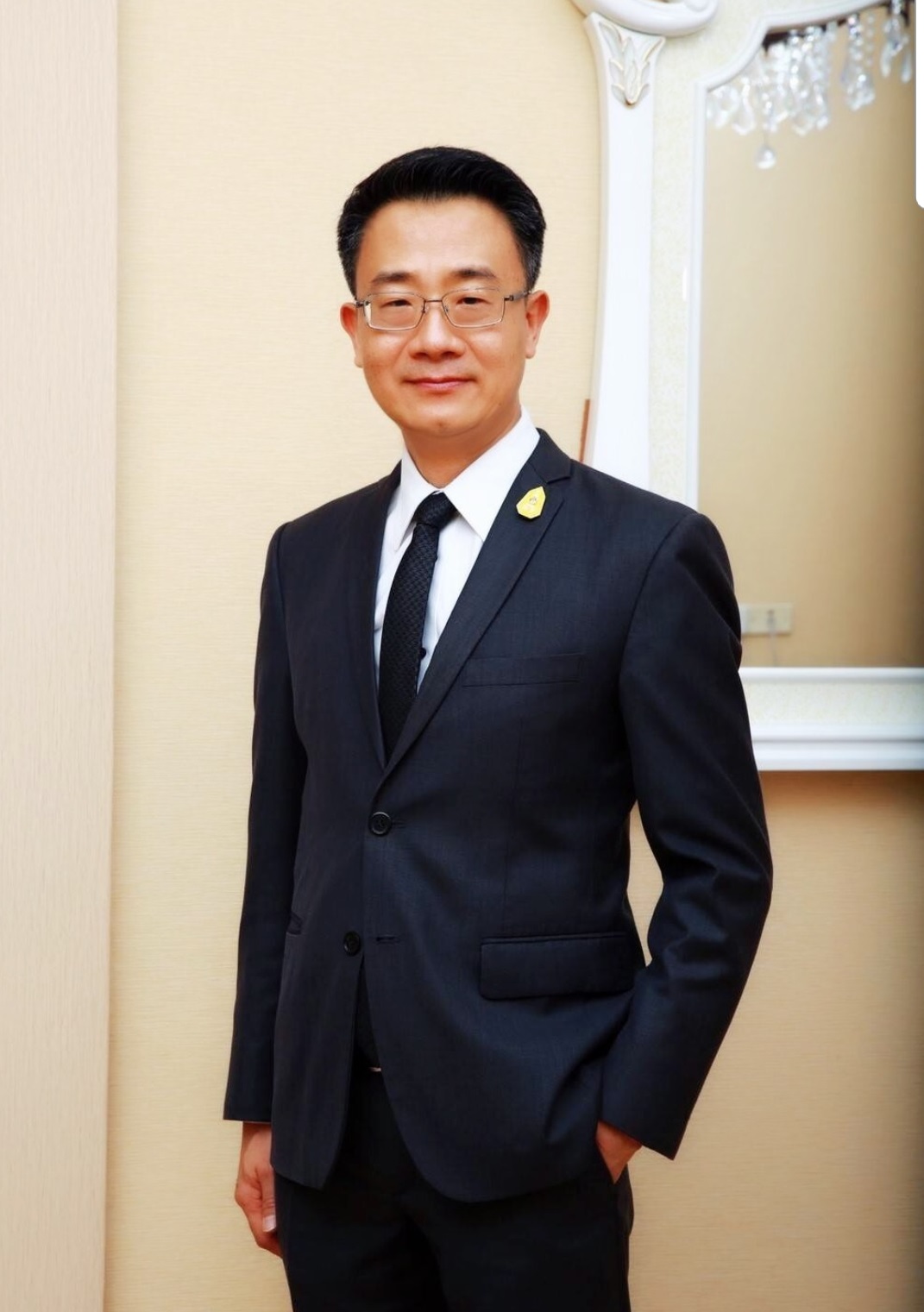
Mr. Visit Limlurcha
President
Thai Food Processors’ Association(TFPA), Chairperson, Food Processing Industries Club, Federation of Thai Industries (FTI)

Ms. Masami T. Takeuchi
Food Safety Officer
Food and Agricultural Organization(FAO)
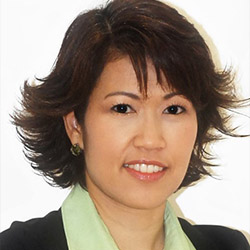
Dr. Akeanong Jangbua
Chief Operating Officer (COO)
Food Innopolis
.jpg)
Mr. Yongvut Saovapruk
President
National Food Institute (NFI)
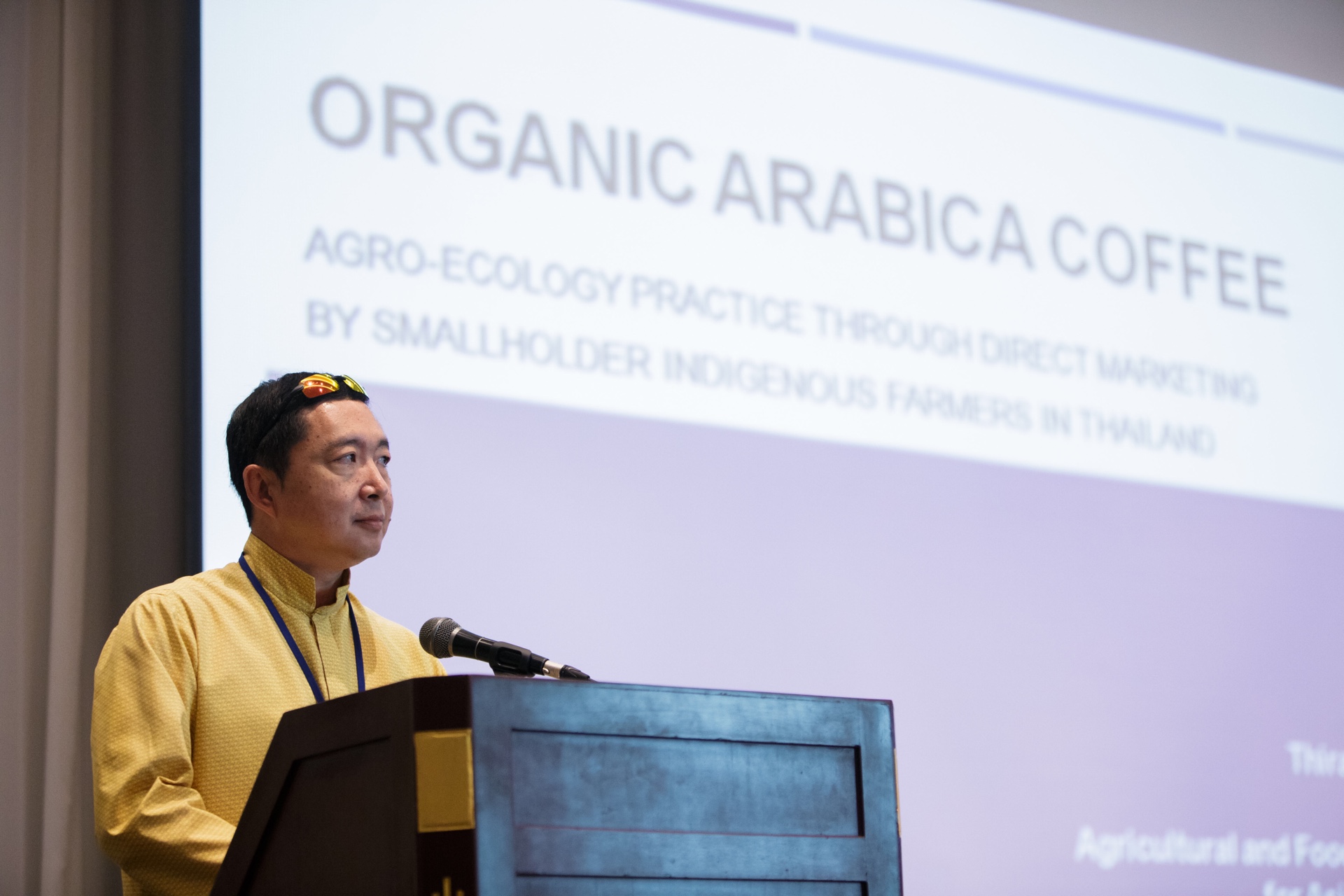
Mr. Thirach Rungruangkanokkul
Executive Director
Agricultural and Food Marketing Association for Asia and the Pacific (AFMA)
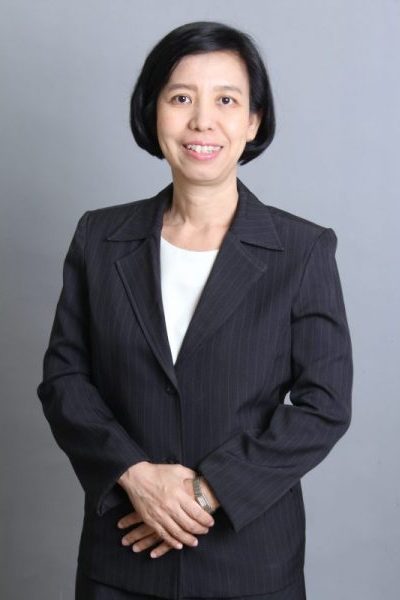
Dr. Pattra Maneesin
Director
Thai Packaging Centre (TPC), Thailand Institute of Scientific and Technological Research (TISTR)

Dr. Watcharas Leelawath
Executive Director
Mekong Institute (MI)
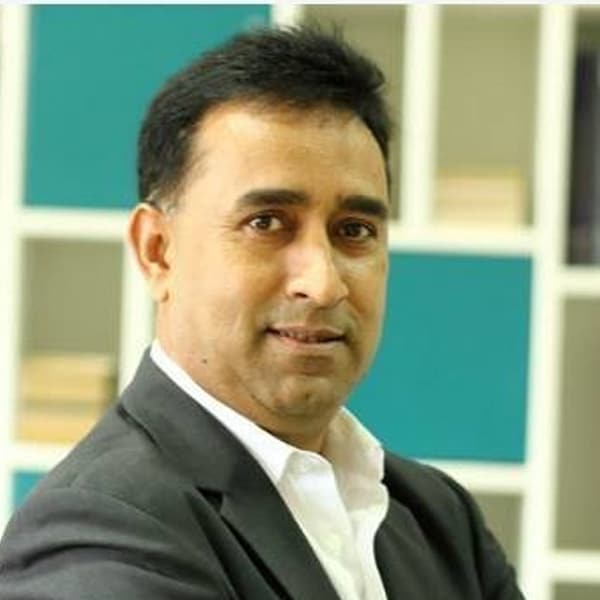
Mr. Madhurjya Kumar Dutta
Director
Trade and Investment Facilitation (TIF) Department Mekong Institute (MI)
OUR ORGANIZERS
Organizations that make this possible
